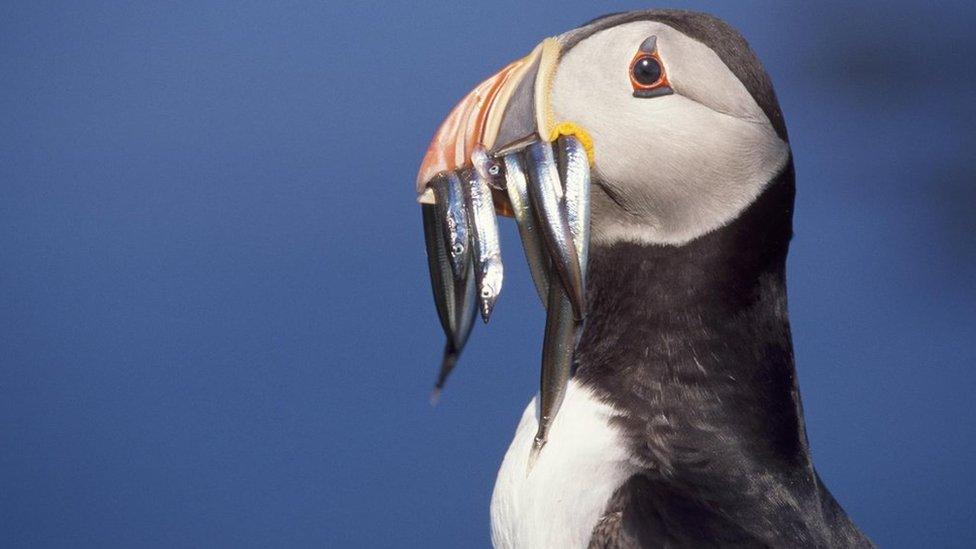New study into climate impact on North Sea wildlife
- Published

Sandeels are the main food for seabirds such as puffins
Scientists have sought to shed new light on how climate change risks disrupting the North Sea's food chain.
Marine Scotland Science researchers looked at what effect warming sea temperatures might have on sandeels.
Sandeel larvae hatch close to the start of a "bloom" in their prey, the eggs of tiny crustaceans called copepods.
But the researchers warn warmer temperatures would create a situation where the larvae hatch days after their first meal was abundantly available.
In a "worst case scenario", the scientists said the eel larvae might fail to get enough energy from their first feed and then suffer "high mortality rates".
Sandeels are a key prey species for seabirds such as puffins.
The research has been published in the journal .
The study drew on data gathered by Marine Scotland's Scottish Coastal Observatory monitoring site at Stonehaven in Aberdeenshire, and yearly winter assessment surveys conducted from a research ship.